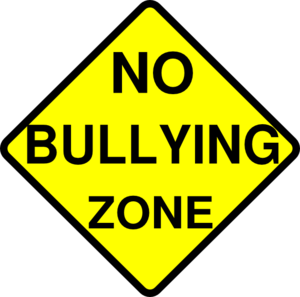With the accusations against Hollywood film producer and executive Harvey Weinstein coming fast and furious, we are once again confronted by the specter of sexual harassment and assault in the United States. Of course, the situation should not come as a surprise (although sometimes it seems to): within only the past few years, we have seen accusations, articles, new stories, videos and court cases against Bill Cosby, the late Roger Ailes, Fox host Bill O’Reilly, nearly two dozen Uber employees, and even our own President, Donald J. Trump.
For some of us, these stories are met with disgust and rage – and amazement that this despicable behavior on the part of some powerful men still continues in 2017, since we have been dealing with this problem nationwide for decades. Full disclosure: I myself was sexually harassed in various ways by two tenured Harvard professors in the late 1970s and early 1980s. I remember well when the stories of Anita Hill’s accusations against then Supreme Court nominee Clarence Thomas emerged in 1991; we thought, “Whew, now that this is out in the open nationally, our anger and disgust about what happened to us is finally vindicated, and maybe we can stop this from happening to others.”
 No such luck, unfortunately. For my part, when I received my doctorate from Harvard Divinity School in 1986, I volunteered to be on the Alumni/ae Council and proceeded to tell my fellow Council members what one of their illustrious professors had done to me (no rape, fortunately, but a lot of groping and some French kissing over a two-year period). Within a short amount of time, the Dean of Students was initiating panel discussions on sexual harassment. Around the same time, Harvard, other institutions, and the wider culture also began to take the problem seriously and craft laws and rules to combat it. I am proud of what I was able to accomplish in a small way at my alma mater, and by doing what I did, I emerged from the situation stronger and more confident than when the victimization started. (In the case of the other Harvard professor, who was required to take a semester’s sabbatical and undergo counseling after he was accused of sexually harassing one of his undergraduate students, he made passes at me in his home, while his wife was out walking the dogs. When I told his wife what was going on, I not only lost her and their children as friends but he also proceeded to menace me and write me a threatening letter.)
No such luck, unfortunately. For my part, when I received my doctorate from Harvard Divinity School in 1986, I volunteered to be on the Alumni/ae Council and proceeded to tell my fellow Council members what one of their illustrious professors had done to me (no rape, fortunately, but a lot of groping and some French kissing over a two-year period). Within a short amount of time, the Dean of Students was initiating panel discussions on sexual harassment. Around the same time, Harvard, other institutions, and the wider culture also began to take the problem seriously and craft laws and rules to combat it. I am proud of what I was able to accomplish in a small way at my alma mater, and by doing what I did, I emerged from the situation stronger and more confident than when the victimization started. (In the case of the other Harvard professor, who was required to take a semester’s sabbatical and undergo counseling after he was accused of sexually harassing one of his undergraduate students, he made passes at me in his home, while his wife was out walking the dogs. When I told his wife what was going on, I not only lost her and their children as friends but he also proceeded to menace me and write me a threatening letter.)
So, despite the heightened awareness of both women and men that certain behaviors are off-limits and the laws that have been put in place to combat such behavior, the problem continues. The situation actually seems intractable, in part because it is multi-faceted. I suspect it may never be entirely solved – there will always be bad actors, unfortunately – but by constant vigilance on everyone’s part and by tackling a multitude of issues simultaneously as a society we can perhaps make further progress.
Let us parse the situation from several angles.
- Socialization. One can legitimately argue that most men (let’s deal primarily with men, with the understanding that women too can certainly abuse others, especially if there is a power differential) do not exhibit bad or abusive behavior on a regular basis. They have been socialized – by parents, other adults, teachers, peers – to treat others decently, perhaps having been taught the Golden Rule when growing up (“do unto others as you would have others do unto you”).
- Thoughts and words versus actions. We must also admit that, even when men are properly socialized and exhibit good behavior, they may still have thoughts about others (e.g., women, minorities, other men whom they might consider inferior or gay) that are far from thoughts of equality and decency and are often expressed verbally or in writing. In other words, some men who believe that someone is inferior to them might never be physically violent or abusive toward them but might well insult, bully or intimidate them with words. This is the reason that the EEOC sexual harassment law mentions hostile work environment and states clearly that harassment is not limited to physicality.
- Misogyny. Where does an attitude against women come from? Whether women are physically abused, assaulted, raped or even murdered by men or are harassed and intimidated with words, there is often an underlying feeling of misogyny – a basic hatred of women. This is a huge topic, has been dealt with by many experts, and is too large to sufficiently deal with here, but suffice it to say that hatred of any group of people – whether of different races, religions, ethnicities, etc. – is deep-seated. My argument here is simply that we all need to be aware that someone who might otherwise appear to be a “good guy” might actually harbor very ugly and dangerous thoughts toward others, including and perhaps especially women.

- Denial. We have all heard, through the reams of sexual harassment and assault stories, of people, including other women, who do not believe the stories of victims. Excuses are made (and I have encountered some of these personally): “You’re misinterpreting his actions. He was just being affectionate.” “Boys will be boys.” “She dressed too provocatively: what did she expect?” “He’s powerful and rich; she’s lying just to get big bucks from him.” “He’s a priest, a man of God who’s taken vows. He couldn’t possibly have done what they say he’s done!” Further, I suspect that many women who have not been sexually harassed or assaulted find it hard to believe other women’s reports. I also believe that many women remain under the thumb of abusive husbands and boyfriends who insist to their wives/girlfriends that women who tell harassment stories are delusional or lying or “bitches.”
- Power. In my own case (in academia) and in most of the cases that have made the headlines, the power differential is usually a primary cause not only of the perpetrator’s behavior but also of others’ reactions (including silence). Men who have power over others, especially over young, naïve, ambitious women (as I was as a graduate student), can not only determine the fate of their victims (by rewarding or punishing) but can also get away with the behavior for decades. They threaten victims with retaliation if anything is said, and they present themselves to their peers and superiors as upstanding, and often very talented, players.
- Money.
 Along with power often goes money. The powerful abuser and/or his employer often has enough wealth to make the problem go away (by settling complaints instead of going to trial, thus silencing the victim), while the victim usually has many fewer financial resources (to take time to file a complaint, to leave her job to escape the abuse, to hire an attorney, etc.).
Along with power often goes money. The powerful abuser and/or his employer often has enough wealth to make the problem go away (by settling complaints instead of going to trial, thus silencing the victim), while the victim usually has many fewer financial resources (to take time to file a complaint, to leave her job to escape the abuse, to hire an attorney, etc.). - Personality disorders. As I mentioned earlier, I had to deal early on with Harvard professors who exhibited very disturbing personal characteristics. In addition to sexual harassment, they also had a tendency to lie, bully and intimidate others, embarrass their families (both of these men were married and had teenage children), and fail to pay bills. When I began to assess these professors in light of the definition of psychopathy, I found to my dismay that they met the majority of those character traits. By reading further on the issue as time went on, including experts like Hare and Stout who warn the public that psychopaths are not just felons in prison, I learned how pervasive this personality disorder is in our society. With regard to the sexual harassment cases of Weinstein et al, I would venture to argue that many perpetrators in power positions who sexually harass women – in Hollywood, in the church, in academia, in most situations and workplaces one can name – could well be psychopaths, and thus extremely dangerous. This realization is important because, once we understand that this might be the case, there may be more systematic or scientific ways of dealing with the problem.
- Long-term consequences. Many of us are very young and inexperienced when we are met with a person in power who harasses, coerces, assaults or tries to make certain “deals” with us. In my own case, as soon as a friend told me that I should be very angry at what these men were doing to me, I “woke up” – and became angry and strong. (Note that anger is not always a bad emotion, as I dealt with previously.) This is the case with many other victims, and we go on to live productive, happy lives. But as recent accounts reveal, many victims are scarred for years emotionally, are damaged or ruined professionally and financially, sometimes encounter conflicts with family and friends, and feel shame and fear. It is extremely important for the general public to realize the consequences of victimization: harassment impacts not only the victim but our entire society. (In the case of the non-HDS professor who harassed me, his students and even his children’s friends, his extremely talented wife was unable to become president of a prestigious women’s college because the college did not want the husband living on their campus…) These consequences are among the reasons why combatting sexual harassment, sexual assault and hostile work environment are so important, and why we should applaud the brave victims/survivors who come forward to tell their stories.
- The law.
 Unfortunately, when people do not behave properly toward others, making workplace or other environments toxic, lawmakers often have to step in and legislate behavior. (It isn’t always enough that companies and organizations initiate regulations on their own: the solution needs to go to the next level, that of government.) Laws are now on the books in states and at the federal level to combat sexual harassment and assault. But unlike learning the “rules of the road” by taking a (usually mandatory) driver’s education class in order to be granted a driver’s license, there is no equivalent, to my knowledge, of employers, clergy, the military, and potential victims to learn about sexual harassment laws. (I acknowledge that some places supposedly require their employees to attend a session or complete a web course online, but I have witnessed the difficulty of this approach with tenured professors, for instance: they cannot be fired just because they do not attend a session on sexual harassment.) Because of this widespread lack of knowledge of the powerful person’s responsibilities and the potential victim’s rights, the problem persists.
Unfortunately, when people do not behave properly toward others, making workplace or other environments toxic, lawmakers often have to step in and legislate behavior. (It isn’t always enough that companies and organizations initiate regulations on their own: the solution needs to go to the next level, that of government.) Laws are now on the books in states and at the federal level to combat sexual harassment and assault. But unlike learning the “rules of the road” by taking a (usually mandatory) driver’s education class in order to be granted a driver’s license, there is no equivalent, to my knowledge, of employers, clergy, the military, and potential victims to learn about sexual harassment laws. (I acknowledge that some places supposedly require their employees to attend a session or complete a web course online, but I have witnessed the difficulty of this approach with tenured professors, for instance: they cannot be fired just because they do not attend a session on sexual harassment.) Because of this widespread lack of knowledge of the powerful person’s responsibilities and the potential victim’s rights, the problem persists.
This, then, brings us to what might be done to tackle the sexual harassment problem in the US. First, we cannot be naïve that the problem actually exists. The percentage of false accusations is very small; most victims of sexual harassment or assault do not have any desire for “15 minutes of fame” because of their harrowing situation – part of the reason that many assaults go unreported.
Second, good, decent men bear some of the responsibility of fostering healthy workplaces and other environments; tackling the pervasive issue of sexual harassment and assault is not just the responsibility of women. Men should be encouraged throughout our culture to cultivate their own empathetic sides, find ways to challenge any of their friends or colleagues who might tell sexist jokes or brag about “conquests” of women, and so on. 
Third, all institutions should constantly pay attention to this issue; the good ones already do. There are ways to cultivate healthy, safe atmospheres; institutions have an obligation to their employees, shareholders and clients to combat all forms of intimidation, bullying, harassment, and assault and should build the cost of any preventative methods into their annual budgets.
Fourth, we all need to be aware that there are psychopaths in our midst – in our families, our neighborhoods, our legislatures, our churches, our schools, etc. It is highly likely that psychopathology not only starts early in life, according to the experts, but probably has no cure. This is extremely sobering. But talking about the disorder openly, hearing media reports from experts in the field, learning how to protect oneself (for example, reading the signals much earlier in a relationship), and having the courage to stand up to a psychopath (if that is safe) to counter his or her bullying are all steps that can help in combatting harassment.
Fifth, just as it is important to know about psychopaths in our midst, it is also crucial that women and girls know their legal rights; way too many of us never knew about statutes of limitations, for instance. (I ran into this when trying to complain about my non-HDS perpetrator; I could tell that the official I was speaking to already knew about him and was probably sad that she could do nothing for me, because I was only a few months too late in making my report.) Parents, schools, the media, and human resources personnel in workplaces are among those who should take responsibility for getting the word out about women’s rights and steps they can take if victimized.
Sixth, are there ways in which the laws can be tweaked to assist victims financially, to better equalize the monetary aspect of this problem? Could states, the private sector and nonprofit organizations work together to establish a pool of funds to assist victims with legal fees? Perhaps something like this already exists somewhere. Such collaboration would provide incentive for all sectors to take sexual harassment and assault seriously; costs would presumably go down if incidents of harassment went down.
Seventh, states should pass anti-bullying in the workplace laws. Passing and enforcing anti-bullying laws would most likely help to reduce unacceptable behavior in the workplace.
Eighth, well-known attorney Gloria Allred, who represents many of Weinstein’s victims, has proposed a productive solution in the Weinstein situation: “I am inviting him to agree to engage in an arbitration of these claims with these alleged victims and with an agreed upon retired judge. The women could present their claims of sexual harassment and Mr. Weinstein could present his defense. If the judge finds in favor of the victims, the judge could award damages according to proof at trial. If Mr. Weinstein prevails, he would be able to announce the result to the public. In the alternative, he could also agree to a confidential mediation process to resolve these claims. This proposal is similar to what I suggested to Bill Cosby. He was not wise enough, however, to accept my invitation to resolve the allegations against him. Will Mr. Weinstein accept the offer of a process that is fair to him and will help to provide a system of justice to his accusers? We will have to wait and see.” Who “out there” is brave enough to consider Allred’s proposal and “bake it” into our legal system?
Resources
Ablow, Keith. Inside the Mind of Scott Peterson. New York: St. Martin’s Paperbacks, 2005.
Hare, Robert D. Without Conscience: The Disturbing World of the Psychopaths among Us. New York: Guilford, 1999.
Stout, Martha. The Sociopath Next Door. New York: Broadway Books, 2005.
